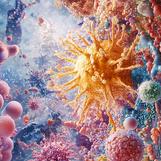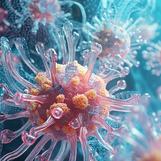Michael Lustgarten
#Gut #Microbiome #Nutrition #Science #Skin #Sleep #Supplements #Workout

Dr. Michael Lustgarten is a Boston-based scientist who specializes in exploring how the gut microbiome and serum metabolome influence muscle mass and functionality in older adults. He holds the position of Scientist II on the Nutrition, Exercise Physiology, and Sarcopenia (NEPS) Team at the Jean Mayer USDA Human Nutrition Research Center on Aging (HNRCA) at Tufts University.
Dr. Lustgarten has served as a guest lecturer at the Friedman School of Nutrition Science and Policy, where he has presented on subjects including the gut microbiome, serum metabolome, oxidative stress, exercise, and sarcopenia. His academic contributions include 25 publications in prestigious peer-reviewed journals, which have been cited over 2,400 times. Among these, he is the first or last author on 17 manuscripts, highlighting his significant role in advancing research in his field.
Updates from Michael Lustgarten

Dr. Matt Yousefzadeh, an expert in immunology and aging, delves into how aging affects immune function, leading to chronic diseases and reduced resilience. He explains the concepts of immunosenescence, inflammaging, and strategies to rejuvenate immune health. Discover the latest research on immune system aging, the impact of lifestyle interventions, and how understanding immune resilience can open doors for new therapies in aging and disease prevention.

In 2024, an individual achieved a biological age 17 years younger than their chronological age. This article explores the combination of prescription medication, supplements, and targeted dietary adjustments, including experiments with flaxseeds, oranges, and chickpeas. Learn how strategic lifestyle choices and a balanced diet influenced health markers, from lipoprotein (a) to kidney function, ultimately optimizing biological age.

Discover the journey of an 82-year-old biohacker who has been using peptides for over three years to optimize health and longevity. From enhancing vision with Visoluten to boosting brain function with Cuttin, his peptide regimen has shown promising results. He shares insights from Russian studies suggesting significant survival benefits when peptides are taken consistently for three to five years. Learn how this approach could contribute to a longer, healthier life.

A clinical trial is investigating the effects of low-dose rapamycin on Long COVID. Early research suggests rapamycin may enhance immune function, boost antiviral responses, and reduce T-cell exhaustion. This promising therapy could help control persistent viral infections and even play a role in longevity, offering new hope for Long COVID patients and possibly enhancing overall health as we age.

Kenneth Scott delves into revolutionary rejuvenation therapies, including stem cells, peptides, and mitochondrial health. With a focus on systemic healing and the right to choose one’s treatments, Scott’s approach challenges traditional medical boundaries and offers hope for improving healthspan and vitality. Discover his personal journey through these groundbreaking treatments and explore the future of longevity and rejuvenation.

Dive into Dr. Lee's innovative research from Harvard, where mRNA technology targets the ATF3 gene to rejuvenate aging skin. Using single-cell RNA sequencing, her team mapped over 61,000 skin cells to identify key factors in aging. The breakthrough mRNA therapy increases collagen production by 200% and reduces cellular senescence, effectively reversing wrinkles and dryness.

In her groundbreaking presentation, Dr. Amy Pro unveils the profound connections between chronic viral infections and the aging process. Delving into the human virome, she explains how persistent viruses like EBV and SARS-CoV-2 disrupt mitochondrial function and fuel chronic inflammation, known as inflammaging. Dr. Pro also explores the role of viruses in cognitive decline and Alzheimer’s disease.

While calorie restriction has shown benefits in small animals, recent research challenges its effectiveness for humans. Studies indicate that extreme CR may not be the key to longevity. Instead, maintaining a healthy BMI and focusing on biomarkers like lymphocyte levels and RDW could be more critical for extending life. This article explores the latest findings and suggests that balance, rather than deprivation, is key to a longer, healthier life.

Unlock the secrets to a longer, healthier life with our in-depth exploration of longevity strategies. Discover why walking tops the list of life-extending habits and how high-intensity workouts, balanced diets, and regular sauna use contribute to your lifespan. Dive into the role of biomarkers in measuring your biological age and the complexities of calorie restriction.

Glutathione, a vital antioxidant, decreases as we age, impacting cellular health and longevity. This article explores three studies revealing significant declines in glutathione levels among older adults and investigates whether the amino acids glutamate, cysteine, and glycine contribute to this reduction.

Unlock the secrets to a longer, healthier life with a comprehensive data-driven approach. This article delves into how tracking and optimizing a wide range of biomarkers can slow the aging process and reduce disease risk. Discover the significance of maintaining youthful levels of lymphocytes and managing red blood cell distribution width (RDW) to enhance longevity.